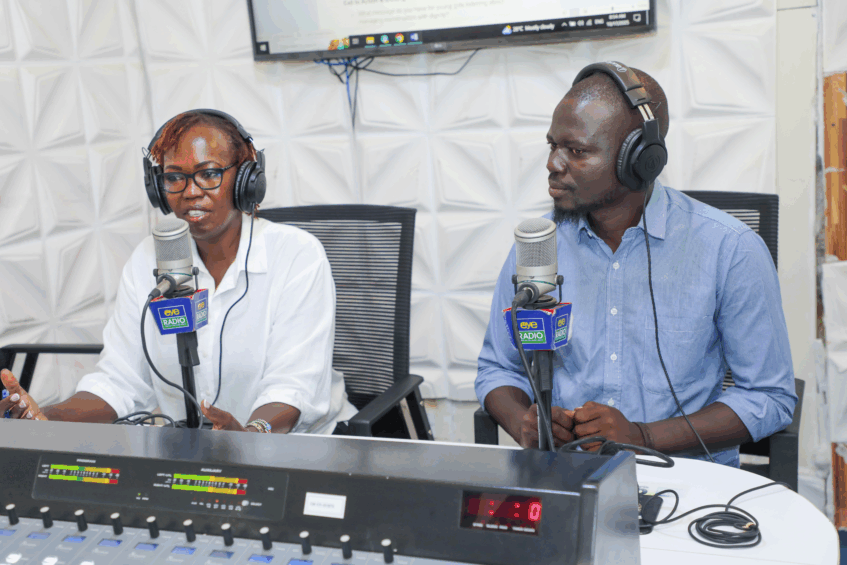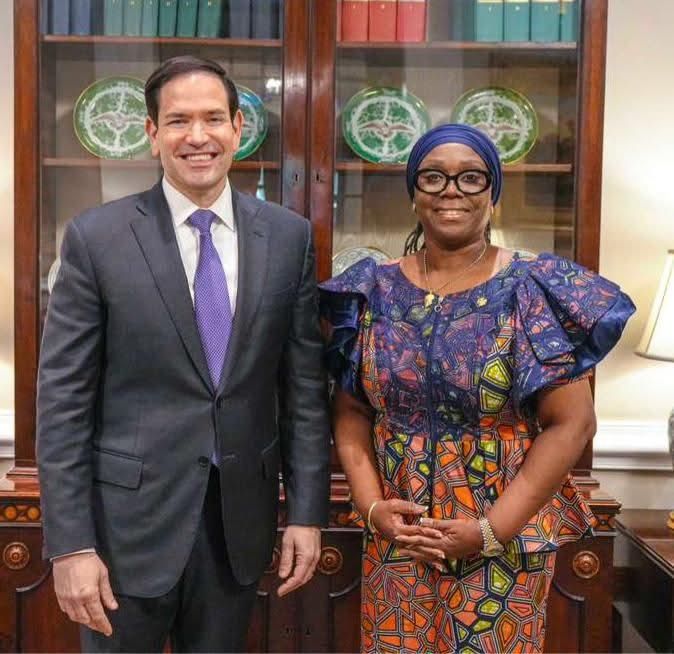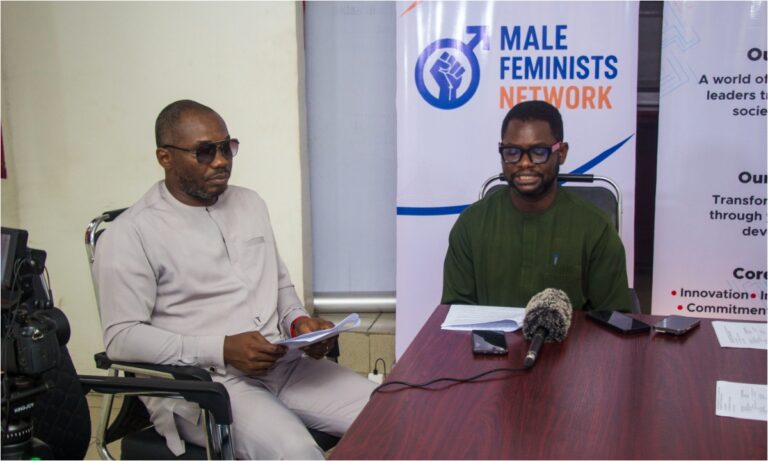
Author: Emmanuel J. Akile | Published: 11 hours ago
Gender advocate and obstetrician and gynaecological oncologist Dr. Idyoro Ojukwu [left] and Data Gordon, the Executive Director of Men for Women Organization – Photo credit: Darlington Moses
JUBA, South Sudan (Eye Radio) – Gender advocates are calling on men to start including sanitary pads in their household budgets for girls under their care.
They say this will help end period stigma and promote better menstrual health.
The advocates say that many men neglect to provide sanitary pads for girls in their homes, affecting how girls manage their periods and negatively impacting their health and education.
Dr Idyoro Ojukwu, an obstetrician and gynaecological oncologist, is one of those raising concerns.
She urged men to take the lead in buying sanitary pads and donating them to girls in nearby schools.
“I’m urging our communities, most of the time, women do not have jobs, they are housewives, a husband will come and only give money for food, without considering pads for their daughters,” said Dr Idyoro was speaking on Eye Radio’s Dawn program, Friday, October 17, 2025.
“I’m sending my message to husbands and men at home. When you are giving money for upkeep, please consider adding money for sanitary pads for girls. I’m encouraging men, even if you don’t have a girl at home, kindly, whenever you go shopping, just buy one always and give it to any school girl that you find on the road,” she added.
Dr Idyoro says many women do not have their own income and depend on their husbands for household needs, making it harder to access menstrual products.
Also speaking on the program was Data Gordon, Executive Director of Men for Women Organization.
He said men must also take the lead in supporting menstrual hygiene and stop being part of the stigma.
“Men are mostly the stigmatizers when it comes to issues of menstruation, so if we change from being stigmatizers to supporters, to allies, then that definitely means we will be able to promote menstrual hygiene management and be able to retain girls in school,” Gordon said.
Gordon added that men and boys should support girls’ education, especially during their menstrual periods.
UNICEF says many schoolgirls face difficulties during their periods due to a lack of clean water, sanitation, and hygiene services, including menstrual hygiene products.
The UN children’s agency says this often leads to late school attendance, poor academic performance, school dropout, and early marriage among girls in South Sudan.
This Dawn show story and program was supported by the ResPEct: Stop SGBV – Respond, Prevent, Educate! project. The project is co-funded by the German Federal Ministry for Economic Cooperation and Development (BMZ) and the European Union, and implemented by the Deutsche Gesellschaft für Internationale Zusammenarbeit (GIZ) GmbH.








